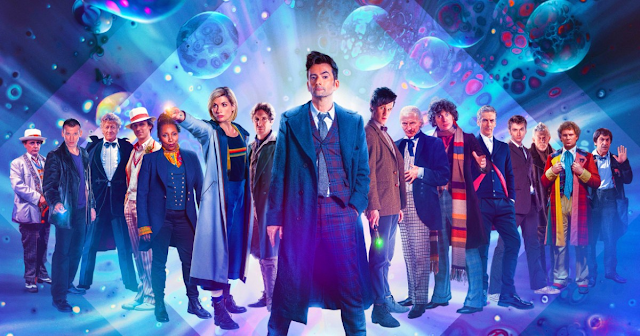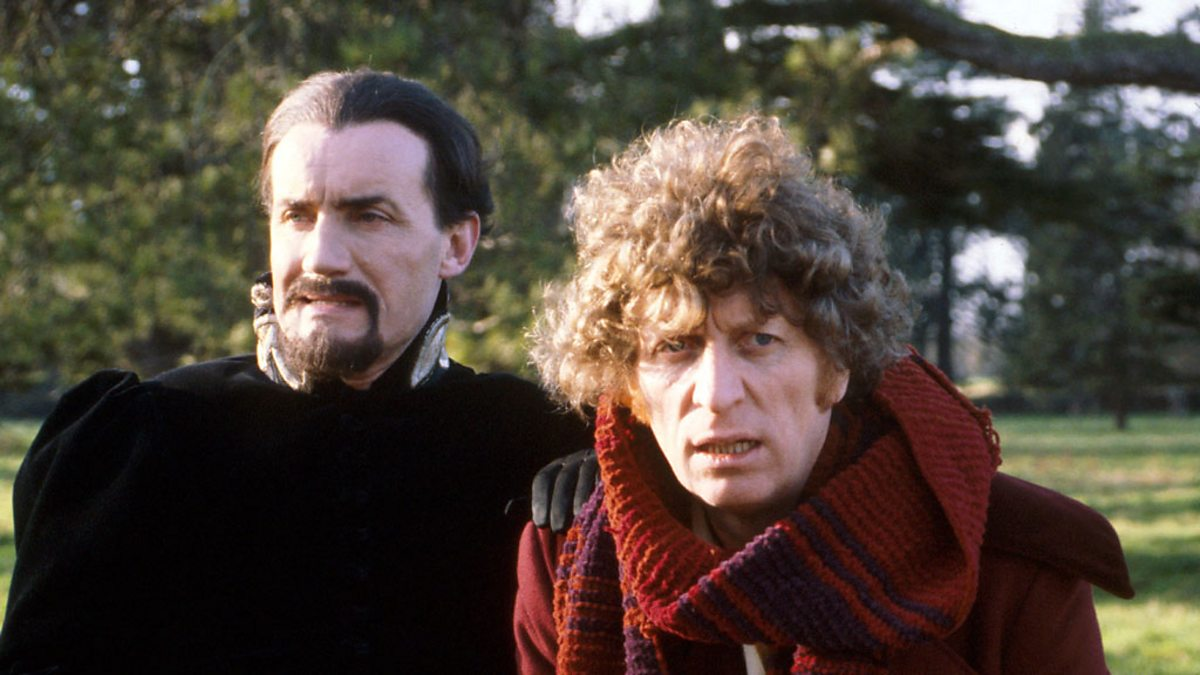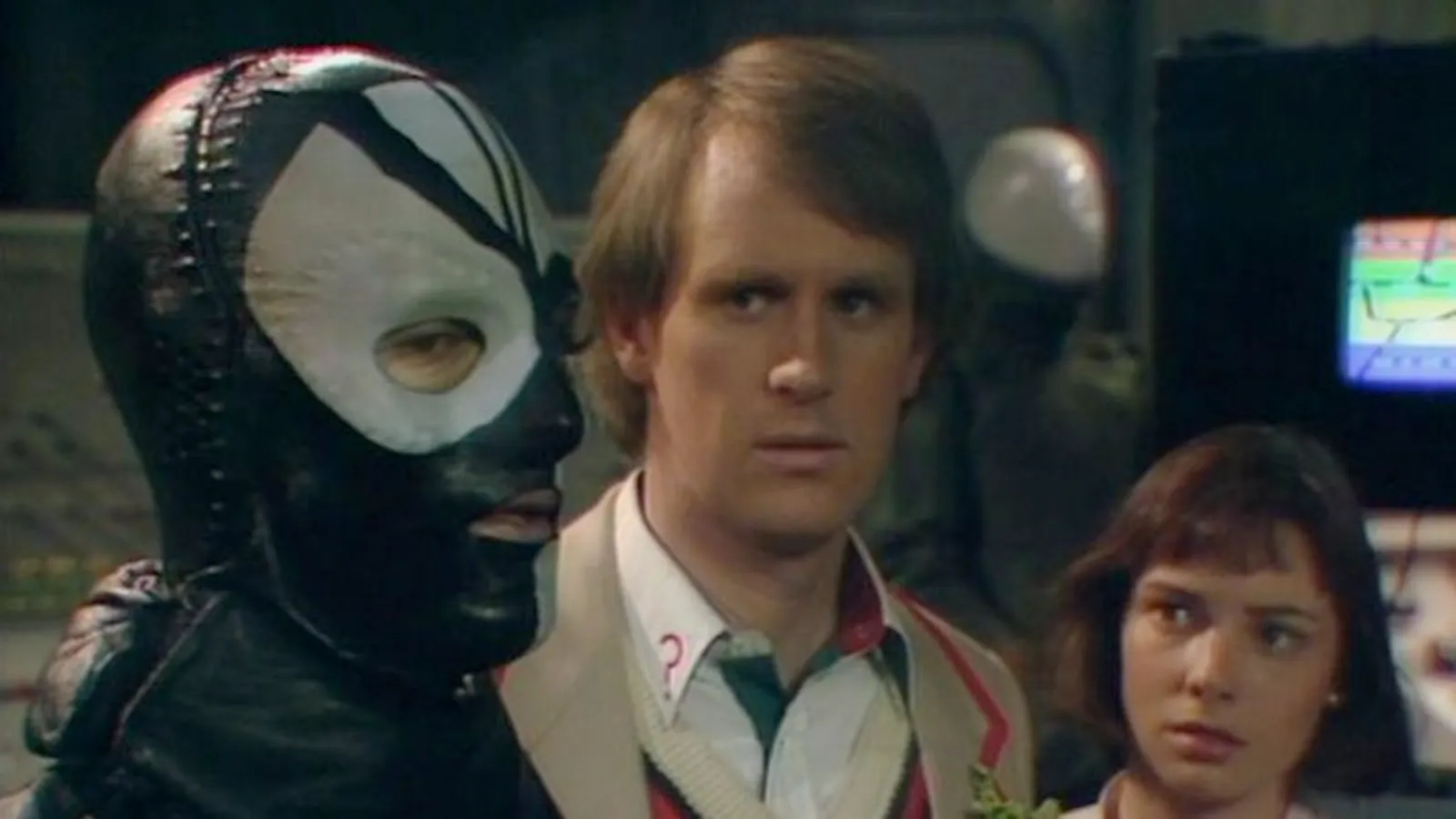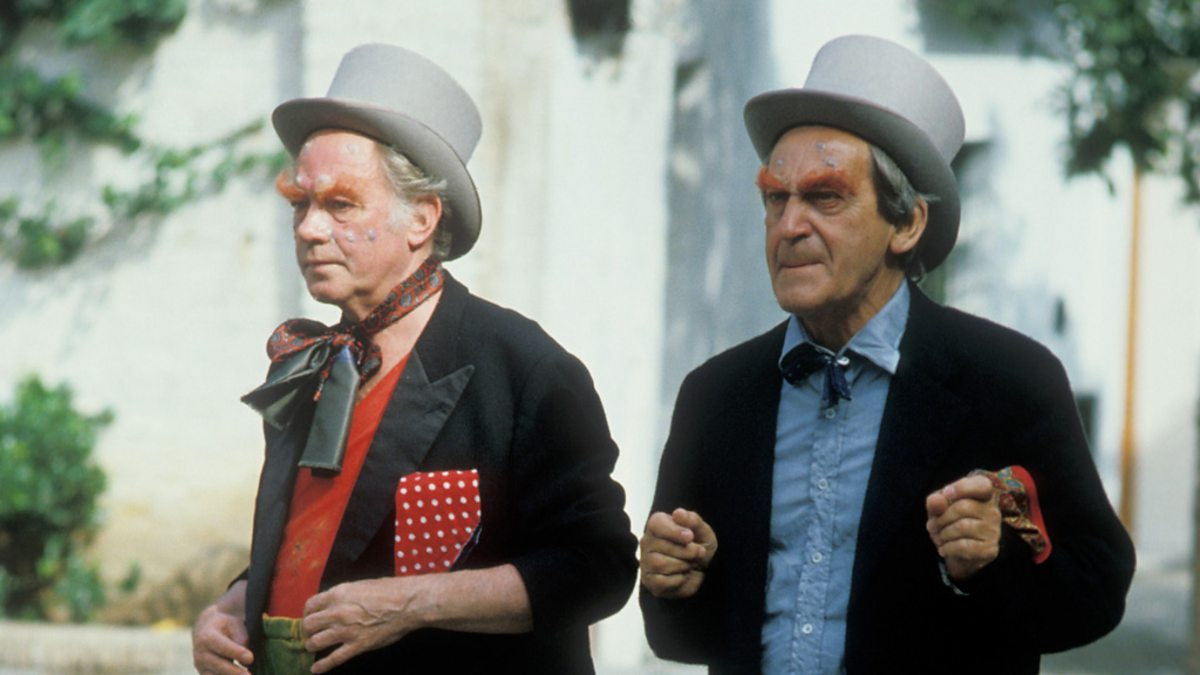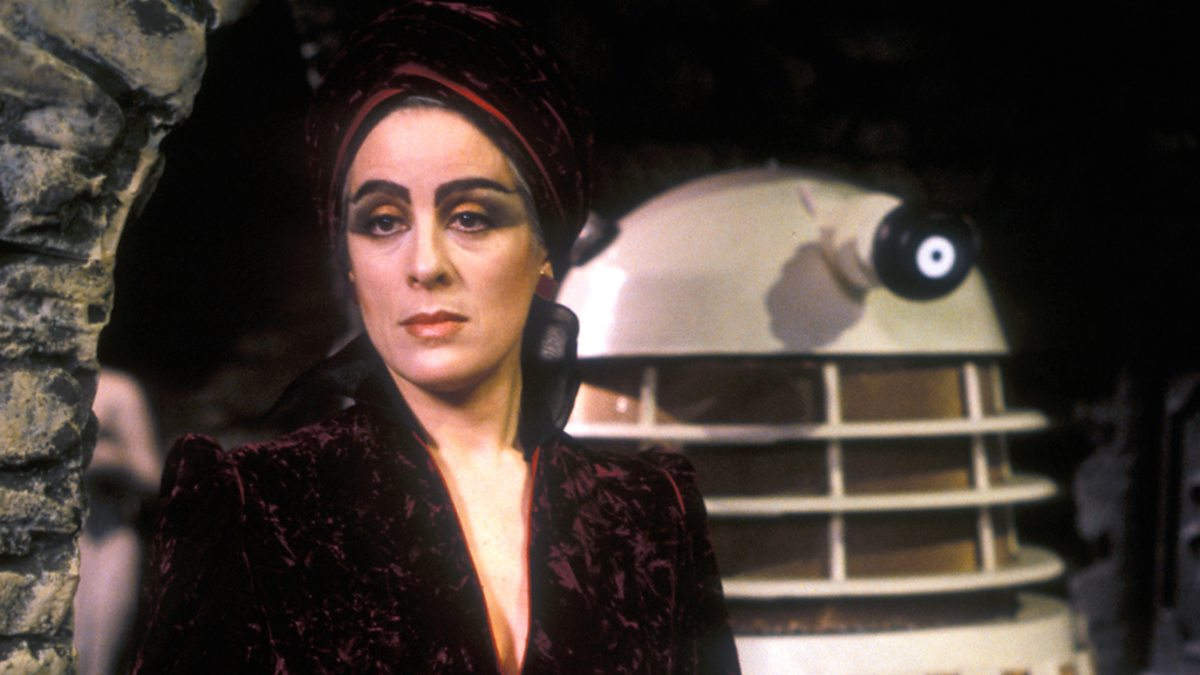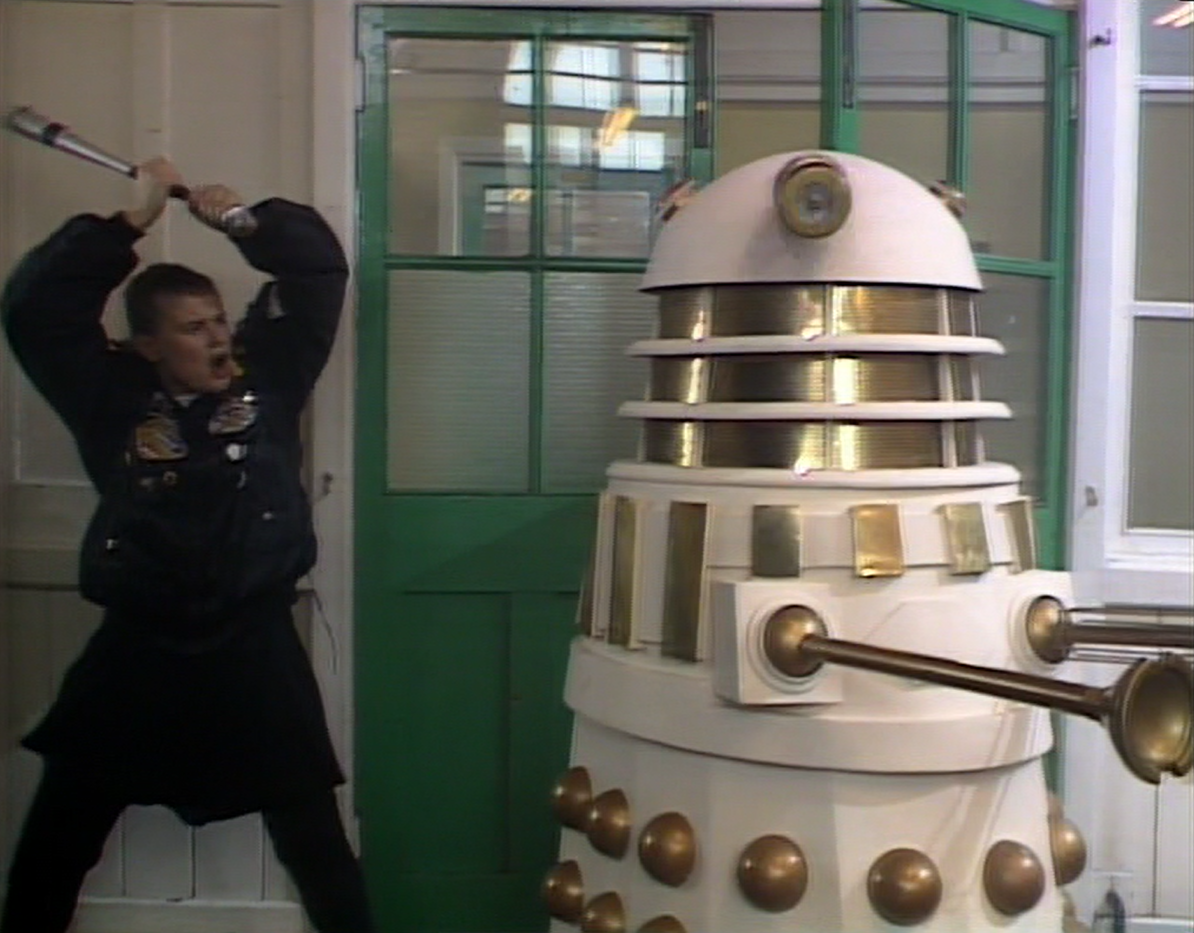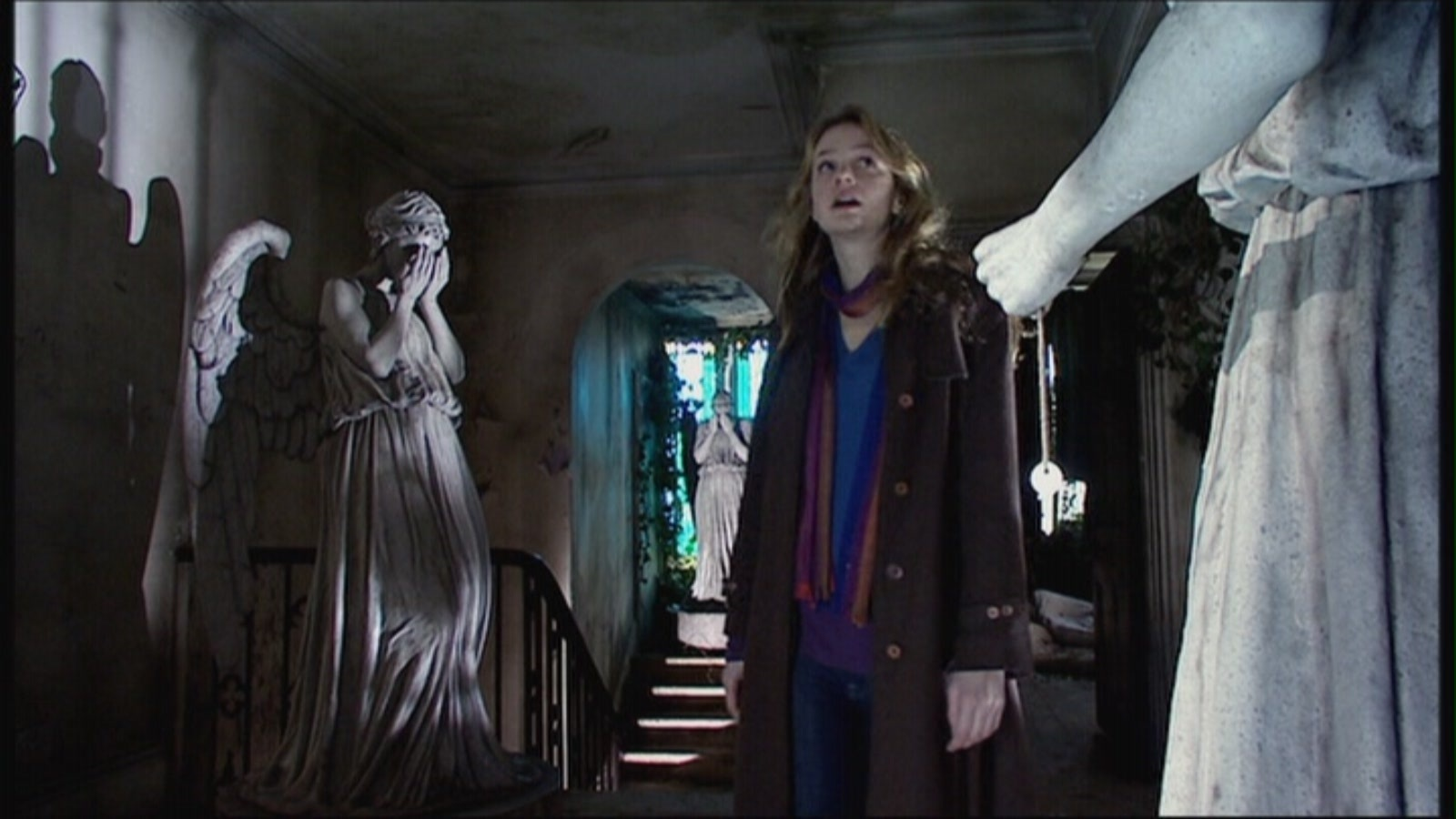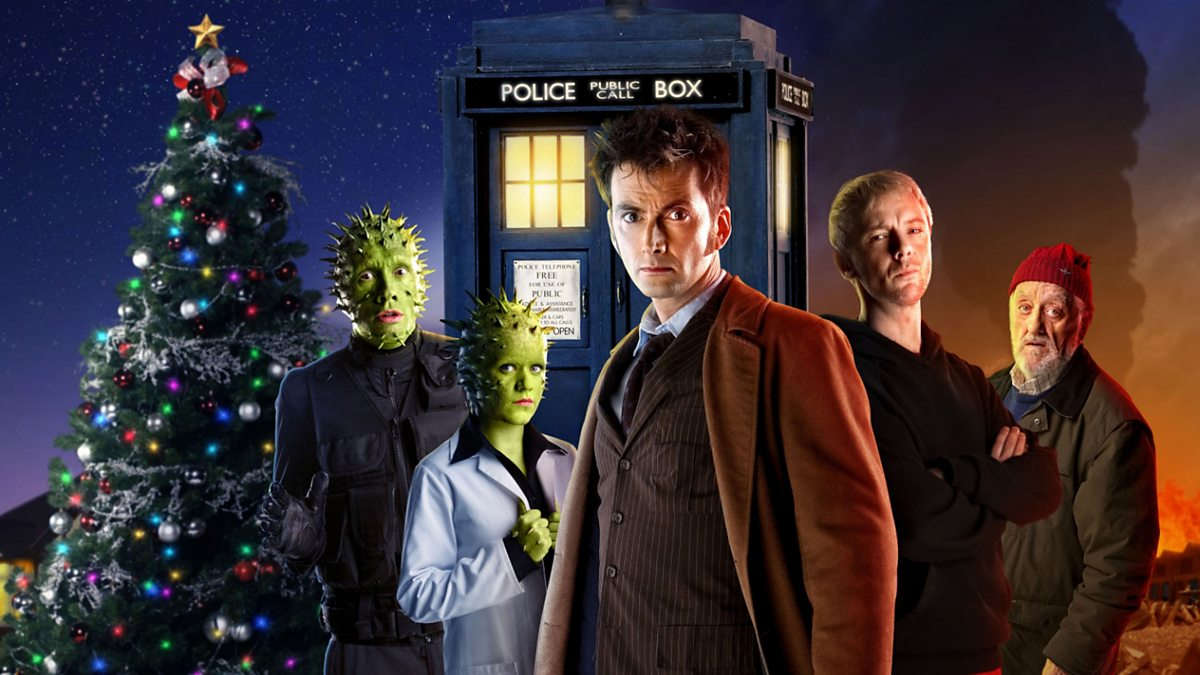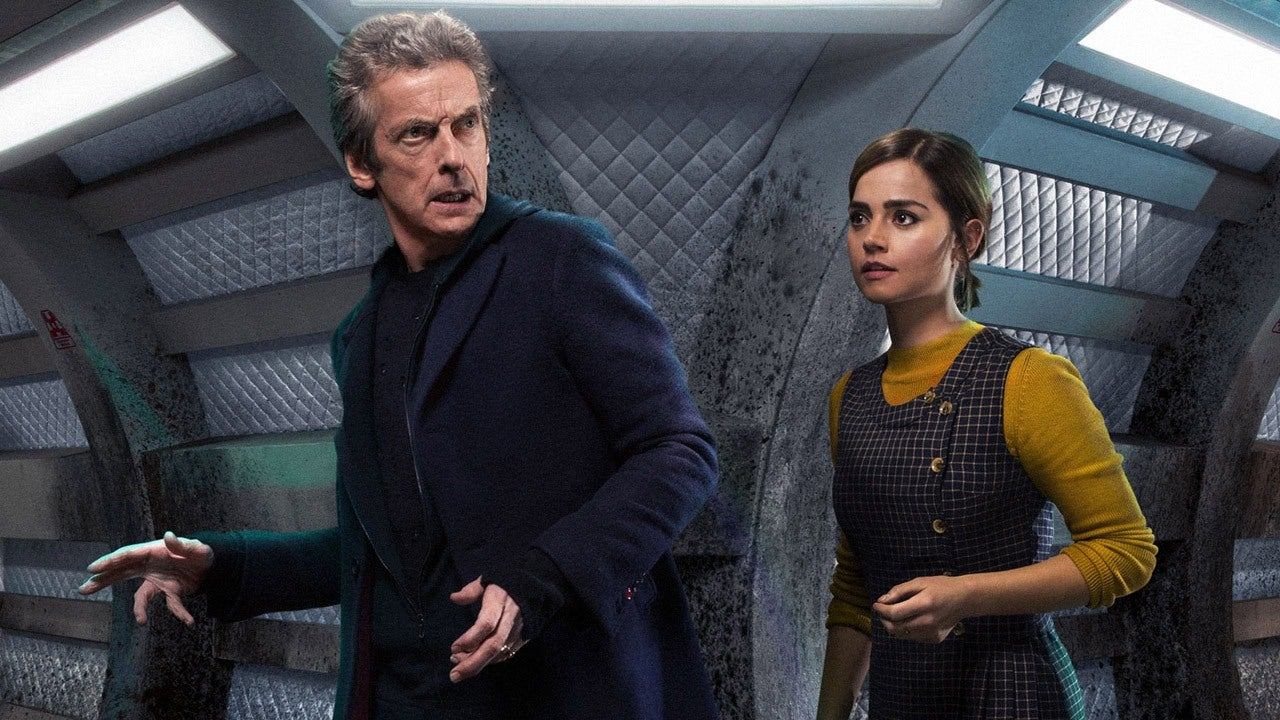So yes. There is a lot, and whilst there will be Whovians across the planet who will tell you every second has its own merits, if you were to sit down, and play the whole lot back to back, without sleep, food or bathroom breaks, you’d still not be able to watch it in its entirety before the first of the three 60th anniversary episodes airs on November 25th. So, what I have here, is a quintessential watchlist, to take you from the Doctors’ first appearance to the last regeneration and give you a taste of how the series has developed over its long history.
My rules were simple:
- There must be content from every Doctor.
- Every regeneration gets a free pass, but I won’t necessarily be covering the appearance and departure of every assistant.
- I won’t otherwise include the animated episodes because at the time of writing I am not sure if they’ll be included. (editor's note: all animated episodes have since been uploaded to iPlayer with the exception of "The Abominable Snowmen")
- I’ll try to keep our personal tastes out of it… which is of course impossible, but you need to hold up these pretences.
An Unearthly ChildFirst aired on 23rd November 1963. This silly little kids’ history series was completely overshadowed by the assassination of American President John F. Kennedy, and it was only by the producers insistence of a repeat that the British public really got to know the crotchety William Hartnell. A fugitive timelord, hiding out in a scrapyard with his granddaughter, evading responsibility, justice, or library fines. It’s never made entirely clear.
Seemingly on a whim, or just to show off, The Doctor, his granddaughter, and her two secondary school teachers are whizzed back to ancient Earth, where they meet a Neanderthal tribe, and somehow avoid rewriting all human history ala the Sound of Thunder. We see the Tardis for the first time, with its dimension warping interior, get the ‘Cleverer than Everyone’ Doctor running a tight line between trying to help, and trying to stay distant, and of course, quizzical companions asking all the right questions so we can have the plot explained to us. That first episode also ends with the looming shadow of a Neanderthal, ready to bring a rock down on our heroes’ heads, letting us know that this show is not here to mess around.
There is still actually some concern whether this very important episode will be in the package, with the current rights holder (Anthony Coburn’s son) arguing that the deal he was offered being ‘a pittance’, but also, quite publicly decrying the casting of female and black actors as The Doctor. If this is not sorted out (Editor: it wasn't), I'll point out that the DVD of these episodes is still knocking around on Ebay for about a fiver.
The DaleksRunning straight on from An Unearthly Child (I promise, this is NOT a list of all the episodes ever), is The Daleks. Possibly the most recognisable characters most from the show, even more so than the titular Doctor. This is the story that introduces the hate-driven fascist little pepper pots with their menacing laser blasters, and slightly less menacing kitchen-sink plunger arms. The story sees The Doctor and his companions landing on a petrified planet, where they make their way to a great metal city, inhabited by robotic creatures with a gooey centre, who are planning to enact the final stages of their war with the planet’s other inhabitants, The Thals. Directed by Christopher Barry, and written by Terry Nation, this really is Doctor Who at full pace right from the start. Allegorising the Nazi exterminations in the least subtle of ways, whilst The Doctor still seeks the most peaceful solution, what sticks with you is how perfect the Daleks are right off the bat. The voices, the movement, the shape is all pretty much intact from here to the very latest Dalek episodes. In fact, this story was considered so perfect an encapsulation of the characters, that it was later reworked into the script of the first Doctor Who movie, starring Peter Cushing and Bernard Cribbins (more on him later).

Here we meet our first sticky spot with regard to missing episodes. The last story to feature William Hartnell as the regular Doctor, it is also the first to feature The Doctor’s other major enemy, The Cybermen. This story has the Doctor and associates stuck in the Antarctic, in the futuristic year of 1986, studying a mysterious Tenth Planet, which we discover is the home of the heavily augmented race of Cybermen, who plan to drain the energy of Earth to prolong the life of their own dying planet. Unlike the Daleks, the Cybermen have evolved through their appearances in Doctor Who, and this first iteration of bodystockings, camera parts, and space accordion doesn’t quite scream “Inhuman Terror”. The “Base Under Siege” storyline would be one DW would return to time and again, but this was the story around which the cookie cutter was formed!
The showrunners had long realised that Hartnell’s failing health was as much a risk to the show, as the show was becoming a risk to him, and the first regeneration was a masterstroke of genius born of necessity. The effect itself may have been simple (bleaching out the white balance and coming back with the new actor in an identical pose), but it was a defining moment for the series, both preserving the format for way longer than any actor’s natural lifespan, but also saving the show from fits of artistic temperament, ill health, or any other barriers usually caused by lead actors. I don’t know whether we will get to see the “stills and scans” reproduction of the final episode, or the Area 51 animation, but without doubt, an iconic moment for the Doctor.
The War GamesIt seems a bit cruel to fast forward through Patrick Troughton’s run so quickly. As the “funny little space hobo”, his tenure as the Doctor brought so much to the series. The first use of a sonic screwdriver, the ‘Cassandra Effect’ of being spot on with regards alien invasions, or impending doom, whilst also being completely disbelieved until a Cyberman had his hands around the naysayer’s throat. Again though, so much of these stellar series was binned, recorded over, or otherwise destroyed by a space-saving BBC. The War Games is one of the few stories to survive in its entirety, and what an entirety!
An impressive 10-episode story which probably took the entire backlog of BBC Costume’s war fatigues, to create a training ground where an alien race have been helping themselves to Earth’s finest soldiers, in order to cherry pick an elite fighting force to take over the Galaxy. This rather epic production sees the Doctor overwhelmed for the first time, especially when he realises that he is being pitted against another renegade Time Lord. This feels like a mixture of an epic finale, and a reigning in of the series, as the Doctor must put out a call to those forces which he has spent six seasons desperately avoiding, his own people. The longer series allowed some proper screen time with Jamie, the Highland warrior, and Zoe, an astrophysicist from the 21st Century, and the first of a line of forward thinking female companions, though this series would ultimately see them both returned to their own places in space and time, whilst the Doctor gets one of the most unique regeneration scenes in all of Who, and lays down the lore that fans would argue about for decades.

Wait a minute! That’s a whole first series of John Pertwee missed out! What happened to Spearhead From Space? Whilst Pertwee’s first outing as the Doctor is a fun jaunt, including his stealing of a new set of clothing from a pompous surgeon general, and Bessie, the first of two ‘Whomobiles’ our newly earthbound Doctor is forced to adopt rather than the trusty Tardis, that first series always felt like a kludgy mess as they tried to find a balance between suave, smart and sciency. Desperate to tap into James Bond Chic but trying not to look like a rehash of Adam Adamant, which shared a lot of the shows’ DNA. Terror of the Autons brings back the terrifying villains of Spearhead in Space, with the living plastic Nestene Consciousness. Here, not just limited to living shop dummies, but also killer toys. More importantly though, this story also introduces another renegade Time Lord, The Master.
Breaking up the pattern of “aliens get the upper hand till the Doctor shows off how clever he is”, the Master acts almost as the Anti-Doctor, able to match wits and better the Doctor at his own game. Played here by the brilliant Roger Delgardo, this foil to the Doctor really sat well with Pertwee’s secret agent vibe. He would return throughout the Third Doctor’s run, providing a sort of overarching story, but here it’s just fun to watch him chewing up the scenery.
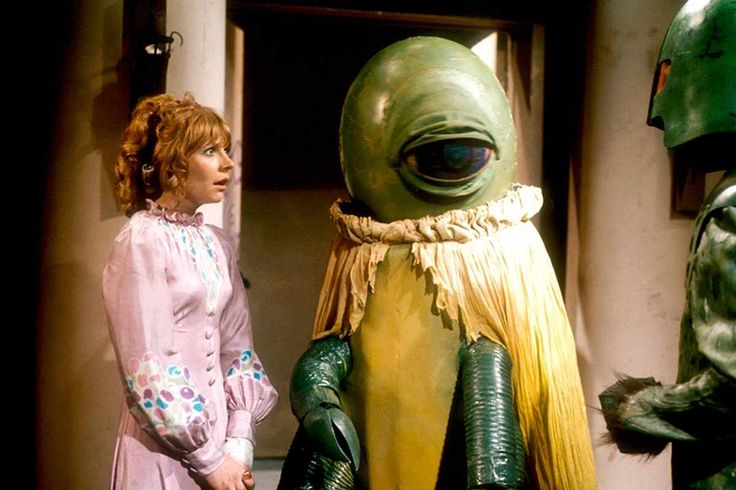
A bit of a cheat, listing two stories at once, but this was the first time that Doctor Who, a show about time travel, really strayed into the whole Wibbly-Wobbly-Timey-Wimey thing, having the Doctor time-jump 50 years on from hist first attempts to save a planet, and discover that his fixes may need running repairs. In the same way that so many fans love Star Wars’ Cantina scene, for its mixture of alien life forms, this is classic Who’s attempt at showing the diversity of alien life, bringing in Martian Ice Warriors, disembodied heads, and the rather peculiar looking Alpha Centauri, from Alpha Centauri. The first of these stories takes obvious influence from Britain’s attempts to join the EEC (back when Brexit sounded like a breakfast cereal), and the second, from the Miners’ Strike, which interrupted so much of the broadcast of Curse. Still, we didn’t hear anything then about Doctor Who being too political.

Technically Pertwee’s last outing as the Big D till The Five Doctors. This began what many consider to be a golden age of Doctor Who, the Tom Baker Years. Robot itself is a definite follow-on from the Third Doctor adventures, with the freshly regenerated Doctor, still in a state of confusion, helping UNIT out against an earthbound threat. Yup, it’s the Fascists again. Here, using an unstoppable robot to steal parts of a doomsday machine, hold the world to ransom, etc, etc, before realising he has remembered how to pilot the Tardis, and heading off into space, with Sarah Jane Smith, and UNIT officer Harry Sullivan in tow, for a ‘Best of Doctor Who Villains’ tour, meeting the Cybermen, Daleks, and Sontarans all in short order). It’s a real treat to see how a standing cast of characters react to the absolute lunatic left turn of Tom Baker’s Doctor, letting the oddity settle in before we get a new direction for the series. This also sees Terrance Dicks back in the writer’s chair after a five-year sabbatical. A fan favourite, and a definite indicator of the more “spacey” direction the series would take.
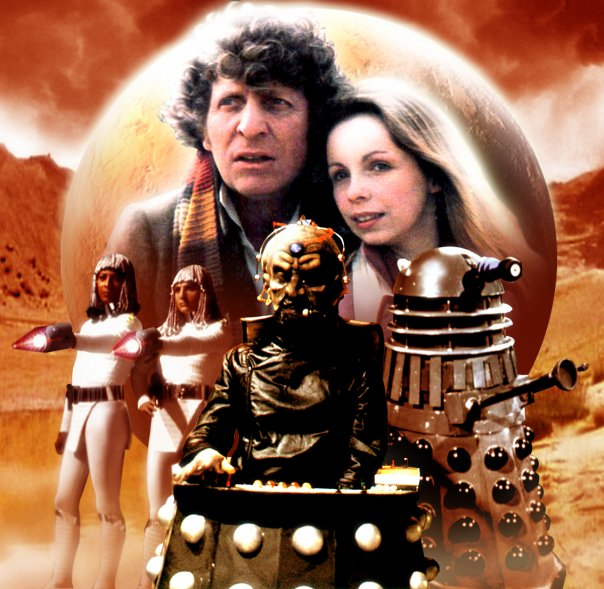
Tom Baker had the most years in the Tardis of the Classic Who Era, and it would be easy enough to fill this list with his exploits. Disclosure time. This is not only my favourite Doctor, and favourite story, but the one that first introduced me to this franchise, which it did with such force, I find it hard to believe that any other story could have as big a hook for a new fan as this.
Destiny Of the Daleks is such a perfect storm of Doctor Who tropes and sigils. We obviously have the pearly toothed Tom Baker, tinkering in the opening scenes with K9, the robotic dog he picked up during The Invisible Enemy. We have the previously introduced Time Lord (Lady) Romana burning through regenerations like trying on outfits, until we have Lalla Ward, an actress who had turned up in the previous episode but had such chemistry with Tom that they went on to feature in 11 more stories, and a very stormy marriage.
We have the filming in a disused quarry just outside Reading (the home from home for Doctor Who, due to BBC’s budget limitations), and of course, we have the Daleks. Breaking through trembling sheets of black plexiglass and terrifying the viewers, whilst the Doctor is quick to point out their rubbish rope climbing ability and enters battles of wits with robots armed only with a packet of Jelly Babies. It’s raucous, dark, and humorous in ways that could only be provided by the stand-in showrunner, Douglas Adams. Still riding high on the success of Hitchhiker’s Guide to the Galaxy, Adams is quick to drop easter eggs and references throughout the story, none of which ever really detract from the impending danger.
LogopolisNot everything on this list is “good”. Some of it really is there to show you the ever-shifting pattern of the show. Logopolis is quite a technical slog, starting with the Doctor ignoring a call to aid by the Time Lords, and instead focussing on a running repair to the Tardis. It ends up involving The Master, Time Loops, and plucking a helpless airline stewardess out of the timestream, all to get that particular cast onto a planet, to stabilise the McGuffin of the week into something The Master can use to hold the whole Galaxy to ransom. This is the fullest the Tardis has been since the early days of Hartnell and paves the way for the ‘Scooby Gang’ mentality that dogged Jodie Whitaker’s tenure. I mean obviously, this is the start of Nyssa/Tegan, and has one of the most peculiar, visceral regenerations, but I almost feel like including it as evidence that not all of Dr Who is great, and sometimes we just have to accept the shoe-leather.
EarthshockA series that wholly divides fans but is included for two reasons. The first being the evolution of the Cybermen. By this point, the suits seem far sleeker, with big shoulder pads, Perspex chest plates, deep Darth Vader voices, and all in all, lending themselves far more to action figure production. The awakening of the Cyber Army is a great scene, and the inclusion of the Cyber Leader builds up all that yummy lore. The second reason for its inclusion is… and this is spoilers… the death of a companion. It’s the first time we really hear about fixed events in spacetime, and the limitations of the Doctor. Where we’ve seen the Doctor use up one of his many lives, for the greater good, it’s never really hit us the way, especially when we see the Doctor powerless to help, and his other travelling companions realise that not everything can be fixed by the Doctor.
The Caves of AndrozaniSometimes, one of Doctor Who’s saving graces, is its ability to dip into other genres. From action adventure and murder mystery to gothic horror, Androzani is probably the closest we get to a Whovian Phantom of the Opera. Whilst on the surface, we have a civil war over a Dune-inspired life prolonging substance, the Mysterious Jek, one of the only ‘one-time villains’ I mention here, skulks in his underground lair, masked and lusting after the Doctor’s assistant. It’s a darker tone, and honestly, that could be said of all of Davidson’s adventures, that it’s summer dappled adventure with some dark, dark shadows. We do also see a good proportion of self-sacrifice and basic heroisms from the Fifth Doctor, as well as a wonderfully back-planned explanation for why he’s got a stick of celery pinned to his coat.
The Two DoctorsYes, the two doctors. Not the five doctors, not the three, but the two.
Multidoctor episodes are rather a mixed bag, offering up plenty of fan service for long time devotees, but also a lot of set vignettes, with little holding them together. Also, the numbering can be misleading. The Three Doctors was predominantly Patrick Troughton and John Pertwee mucking about, whilst William Hartnell was wheeled out to make a few cutting remarks, and The Five Doctors took a handful of shots from Shada to excuse Tom Baker’s absence, and yet he was included in the count. The Two Doctors is a wonderfully balanced story, pitching the harried, supercilious Colin Baker against the rather laid back Troughton, and then having the genius move of swapping their assistants. It’s a wonderful retrospective of the changes in the series, and definitely the best multidoctor story of classic Who.
Revelation of The DaleksIt wasn’t going to be long before we went back to Daleks was it. And whilst this was the only story where Six met the pernicious pepper pots, it is sheer nightmare fuel. Set in an intergalactic funeral home, we discover the Daleks latest plan for world domination is to convert human corpses into Dalek mutants, and wage a war of numbers across the entire universe. It stars Alexi Sayle as a DJ brought in specifically to sooth the dead, adding a sense of gallows humour, and an unforgettable scene where the Doctor sees the face of his current incarnation on his gravestone. The highlight though, is the infamous Glass Dalek, with an unnervingly visceral scene which still holds up as one of the scariest moments in Doctor Who in the last 40 years.
Time And The RaniWhilst much has been made of The Master, The Rani is another one of those renegade Time Lords who seem to show up recurrently. We begin the story with the dazed and confused Seventh Doctor, tricked into helping The Rani, who has disguised herself as his companion, planning to collect some of the greatest brains in the universe to create a time manipulator. It’s a relatively light story, again, bridging the gap between Colin Baker’s Doctor and the new one, in a very traditional Whovian tale, before it all gets a little bit darker.
Remembrance of the DaleksWhilst there is a lot to be said about both Paradise Towers and Silver Nemesis in providing a snapshot of this era of Doctor Who, with its big, anti-establishment ideas, and tiny, show-killing budgets, Remembrance of The Daleks is a fantastic mix of fresh ideas and nods to the show’s long history. Taking place predominantly at Coal Hill School (where the first Doctor Who story opened), this story opened the 25th Anniversary season of the show with a bang. Quite literally, as we see different factions of Daleks blasting away at each other, and Ace McShane, The Doctor’s newest assistant, taking out these alien tanks with augmented baseball bats and home-brewed explosives. Brilliant. There are of course human sympathisers to the Dalek cause (yet another bunch of Fascists), and a new Heavy-Weapons Dalek to contend with, and most terrifyingly of all, as if to spite Tom Baker’s earlier taunting, Daleks that can go up the stairs!
Doctor Who: The MovieWant to see the 8th Doctor? This is it. He does get a nice Shakespearian regeneration speech in Night Of The Doctor, and if you want to dig into audio stories, there’s a huge number staring Paul McGann’s iteration. But for stuff to watch? That’s yer lot.



